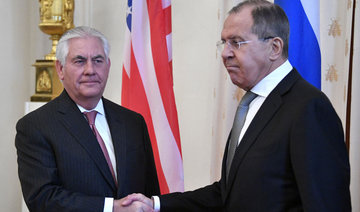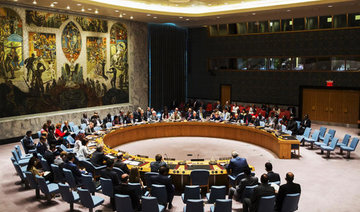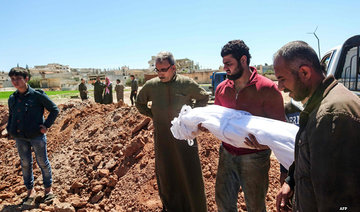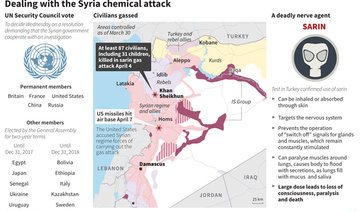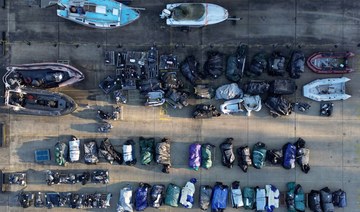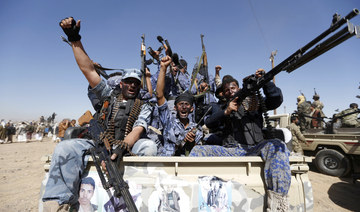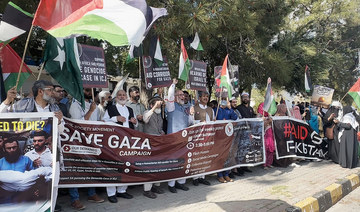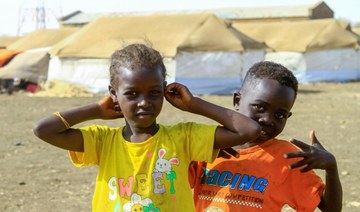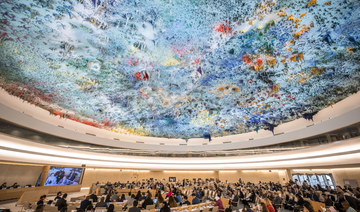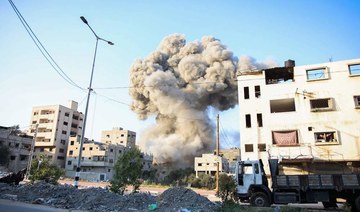In the early hours of April 7, the US military launched a series of missile strikes against an air base in northern Syria, in retaliation for the Syrian regime’s chemical weapons attack against civilians three days earlier.
The strike shows that President Donald Trump is more willing to use military force in Syria than his predecessor, Barack Obama. But it raises another crucial question: Why would Syrian President Bashar Assad, whose regime has consolidated control over Syria’s largest cities in the past year and put the opposition on the defensive, risk a new international backlash by using chemical weapons? If he’s winning, why would Assad take such a risk?
The answer lies in Assad’s refusal to compromise or offer any significant concessions since the Syrian uprising began in March 2011, and later morphed into a civil war. Assad overplayed his hand this time, after being emboldened by recent statements from White House officials that it was time for Western powers to accept the “political reality” of Assad’s continued dominance. Assad likely decided to test those boundaries, not expecting Trump to respond militarily because the US president has made it clear that he sees fighting Islamic State as his highest priority in Syria and Iraq.
Aside from his brutality – the war has killed more than 500,000 people and displaced nearly half of Syria’s population – Assad’s staying power is rooted in a convoluted foreign policy, pioneered by his father, Hafez Assad. Syria played the role of a regional broker and Arab nationalist standard-bearer since 1970, when the elder Assad seized power through a military coup. He perfected the art of creating defensive alliances, nurturing proxies in neighboring countries and keeping his enemies stalled in costly battles.
Since he rose to power after his father’s death in June 2000, the younger Assad learned to keep all of his options open, and to play Syria’s friends and enemies off one another. Assad has portrayed himself as the only one capable of keeping Syria’s army and other state institutions from disintegrating, and preventing the country from falling entirely into the grip of Islamic extremists. To the West, Assad projected himself as the lesser evil – compared to Islamic State, and other jihadists affiliated with Al-Qaeda – even if his regime has instigated more death and destruction than his enemies.
Assad seems determined to replicate the foreign policy of his past, when he was able to hold on to power by being brutal, focusing outward and waiting for regional dynamics to change in his favor. To endure the pressure and international isolation imposed by the George W. Bush administration after its invasion of Iraq in 2003, Assad relied on his father’s foreign policy. The younger Assad feared that Syria was vulnerable to an American invasion, so his regime facilitated the recruiting, training and safe passage for hundreds of Syrian and foreign volunteers to join Al-Qaeda in Iraq to fight US troops and destabilize the Iraqi government.
When popular protests first swept the Arab world in early 2011, Assad was confident that he had nothing to fear because he continued his father’s foreign policy legacy – he did not depend on American military and political support like the leaders of Tunisia, Egypt, Bahrain and Yemen.
Instead, Assad and his allies formed the “axis of resistance” – Iran, Syria and the Islamist militant groups Hezbollah and Hamas. They boasted that the revolts had proven that they are the true representative of the majority of people in the Arab and Muslim worlds, who for decades had been stifled under regimes that “sold out” to the United States.
In refusing to make substantial concessions, Assad has relied on another tactic he learned from his father: The Syrian regime does not make compromises under pressure, whether external or internal, and this principle had served it well in times of crisis. Assad also saw the initial response to popular protests in Tunisia and Egypt, and he likely concluded that by not cracking down forcefully, those rulers appeared weak and encouraged protesters to broaden their demands. So when his own people revolted, Assad decided to hunker down and crush the uprising.
At the start of the rebellion in 2011, Assad used Islamic militants to destabilize his opponents, as he had done nearly a decade earlier in Iraq. The Syrian regime released hundreds of Al-Qaeda activists and other militants from its prisons, and they went on to become leaders of Islamic State and other jihadist groups. Many of those militants ended up fighting Assad’s regime, but they also became the focus for Western leaders worried about jihadist attacks in their own countries.
Throughout the presidential campaign, Trump said he wanted to avoid direct US involvement in the Syrian conflict, which has expanded into a regional proxy war. Russia and Iran, along with Shi’ite militias like Lebanon’s Hezbollah, helped Assad consolidate control and regain territory he lost to the opposition. In December, with intensive Russian air strikes and Iranian ground support, Assad recaptured the opposition-held sections of Aleppo, Syria’s largest city. It was Assad’s biggest victory since the war began.
After Trump was elected, Assad became more confident because Trump had pledged to end US support for the opposition fighting the Syrian regime and direct most American efforts to fighting Islamic State. Assad and his allies have rarely fought directly against the jihadist group, which established its self-proclaimed capital in the eastern city of Raqqa.
Since November, the United States has helped mobilize nearly 50,000 Kurdish and Sunni Arab fighters to encircle Raqqa, and cut it off from all sides. The offensive is supported by American air strikes and hundreds of US troops. But Trump’s missile strikes could slow the offensive to oust Islamic State from Raqqa and other parts of eastern Syria. The Pentagon coordinates with Russian forces in Syria, especially in launching air strikes, and Russian officials threatened to suspend the communications hotline after the April 7 US attack on the Syrian airfield.
Analysis: Why Assad used chemical weapons
Analysis: Why Assad used chemical weapons
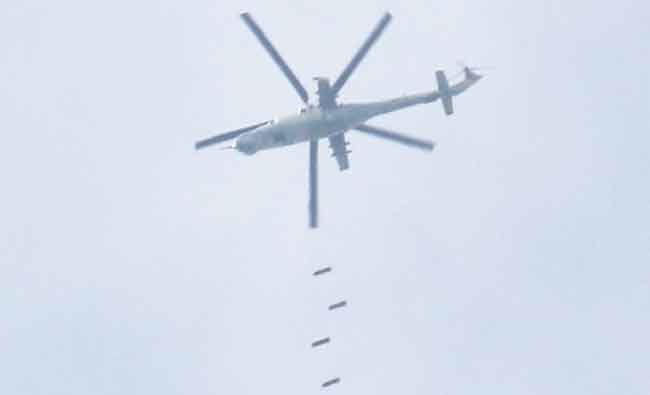
Hamas releases video of two hostages calling for Gaza deal
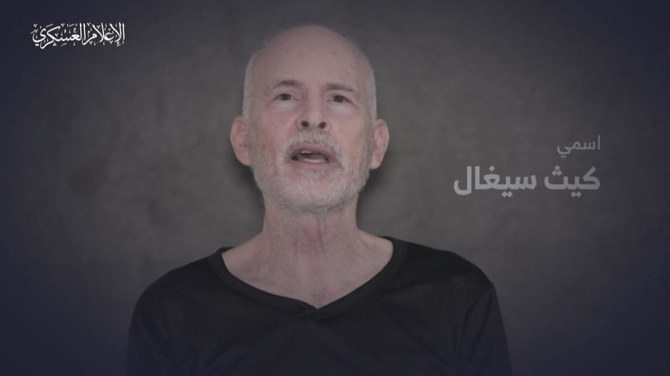
“We are in danger here, there are bombs, it is stressful and scary,” Siegel, 64, said burying his face in his arms as he cried
GAZA STRIP, Palestinian Territories: Hamas’s armed wing released video Saturday of two men held hostage in Gaza who are seen alive and urging Israeli authorities to strike a deal for the release of all the remaining captives.
Campaign group the Hostages and Missing Families Forum identified the two as Keith Siegel and Omri Miran who were abducted by militants during the Hamas attack on southern Israel on October 7.
“The proof of life from Keith Siegel and Omri Miran is the clearest evidence that the Israeli government must do everything to approve a deal for the return of all the hostages before Independence Day (on May 14),” the forum said in a statement.
“The living should return for rehabilitation, and the murdered should receive a dignified burial.”
The latest video comes just three days after Hamas released another video showing hostage Hersh Goldberg-Polin alive.
Siegel and Miran appeared to speak under duress.
“I have been here in Hamas captivity for 202 days. The situation here is unpleasant, difficult and there are many bombs,” Miran, 47, is heard saying in the footage, indicating it was taken earlier this week.
“It’s time to reach a deal that will get us out of here safe and healthy... Keep protesting, so that there will be a deal now.”
Saturday’s video comes as Hamas says it is studying Israel’s latest counterproposal for a Gaza ceasefire after reports that mediator Egypt had sent a delegation to Israel to jump-start stalled negotiations.
Siegel, 64, who also spoke in the video, broke down as he talked of their captivity.
“We are in danger here, there are bombs, it is stressful and scary,” he said, burying his face in his arms as he cried.
“I want to tell my family that I love you very much. It’s important to me that you know that I am fine.
“I have very, very beautiful memories of last year’s Passover that we all celebrated together. I really hope that we will have the best possible surprise,” he said, appealing to Prime Minister Benjamin Netanyahu to reach a deal soon.
Siegel said he seen footage of demonstrations in Israel calling for a deal to secure the release of hostages.
“I hope and believe that you will all continue,” he said, addressing the demonstrators who have been holding regular rallies calling on Netanyahu to agree a deal.
The Ezzedine Al-Qassam Brigades, the armed wing of Hamas, published some lines in Hebrew in the video.
“The military pressure did not succeed in freeing your captive sons,” it said.
“Do what you need to do before it is too late,” said another message in Hebrew.
Later on Saturday, crowds of protesters gathered in Tel Aviv demanding that the authorities strike a deal for the release of the hostages.
“A deal now,” chanted demonstrators as they called for Netanyahu and his government to resign.
Miran’s father Dani attended the rally and urged Hamas leader in Gaza Yahya Sinwar to agree a deal.
“All the people of Israel and the nations of the world want to see an end to the bloodshed and especially an end to the suffering of your people,” he said.
“Please, one request — make a decision now.”
Organizers of the rally showed the video as protesters chanted against the authorities, an AFP correspondent reported.
“Keith, I love you. We will fight until your return,” said Siegel’s wife Aviv who took part in the protest.
Israeli authorities accuse Sinwar of planning the October 7 attack during which Hamas-led militants abducted some 250 people.
The military says 129 of them are still held captive in Gaza, including 34 who are dead.
The attack resulted in the deaths of 1,170 people, most of them civilians, according to an AFP tally of Israeli official figures.
Israel’s retaliatory military offensive in Gaza has killed 34,388 people, most of them women and children, according to the territory’s health ministry.
Iraqi authorities investigate the killing of social media influencer
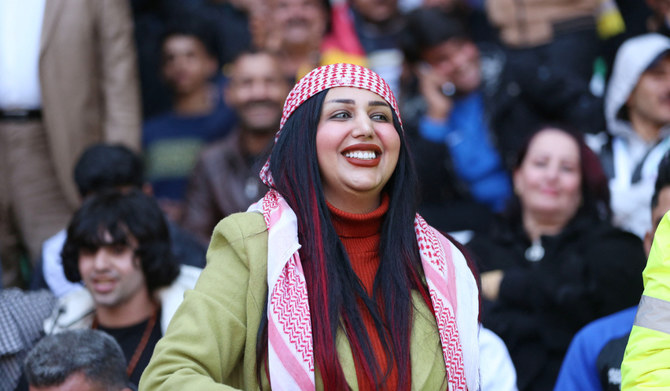
- Videos featuring a prominent influencer during Thursday’s 93rd anniversary of the Iraqi Air Force’s founding sparked a backlash, with many criticizing the Ministry of Defense for allowing them to record and publish videos from sensitive military sites
BAGHDAD: Iraqi authorities on Saturday were investigating the killing of a well-known social media influencer, who was shot by an armed motorcyclist in front of her home in central Baghdad.
Ghufran Mahdi Sawadi, known as Um Fahad or “mother of Fahad,” was popular on the social media sites TikTok and Instagram, where she posted videos of herself dancing to music and was followed by tens of thousands of users.
An Iraqi security official said that the assailant opened fire as Sawadi parked her Cadillac in front of her house on Friday, killing her, then took her phone and fled the scene.
The killing took place in Zayoona, the same neighborhood where a prominent Iraqi researcher and security expert, Hisham Al-Hashimi, was gunned down in 2020.
Before the US invasion of 2003, the neighborhood was home to military leaders and considered a prestigious area in Baghdad.
In recent years, many militia leaders have taken up residence there.
Sawadi is not the first prominent social media figure to be gunned down in central Baghdad.
Last year, Noor Alsaffar or “Noor BM,” was also fatally shot in the city.
A neighbor of Sawadi, who identified himself only by his nickname, Abu Adam or “father of Adam,” said he came out to the street after hearing two shots fired and saw “the car’s door open and she was lying on the steering wheel.”
“The woman who was with her (in the car) escaped, and security forces came and sealed off the entire area, and they took the victim’s body and towed her car,” he said.
In Iraq, the role of social media influencers has broadened from promoting beauty products and clothing to government projects and programs.
Official government invitations classify these influencers as key business figures at sports, security, and cultural gatherings.
Videos featuring a prominent influencer during Thursday’s 93rd anniversary of the Iraqi Air Force’s founding sparked a backlash, with many criticizing the Ministry of Defense for allowing them to record and publish videos from sensitive military sites.
The ministry defended itself, saying that, like defense ministries worldwide, it uses influencers alongside traditional media to communicate with the public in the era of social media.
Last year, an Iraqi court sentenced Sawadi to six months in prison for posting several films and videos containing obscene statements and indecent public behavior on social media as part of a recent push by the Iraqi government to police morals.
Separately on Saturday, the Iraqi parliament passed an amendment to the country’s prostitution law — widely criticized by human rights groups — that would punish same-sex relations with a prison term ranging from 10 to 15 years. A previous version of the law would have imposed the death penalty.
Ships from Turkiye planning to deliver aid to Gaza were denied right to sail
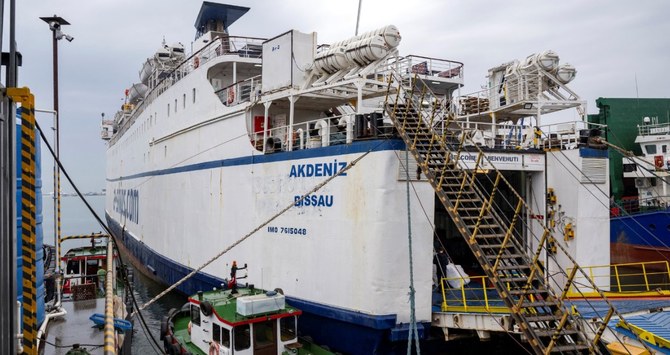
- The Freedom Flotilla Coalition described the cancelation of the vessels’ registry as a “blatantly political move,” adding: “Without a flag, we cannot sail”
- The organizers blamed Israel for applying pressure to prevent the flotilla
ISTANBUL: A three-ship flotilla planning to reach Gaza with humanitarian aid from Turkiye was prevented from sailing by Guinea-Bissau authorities, which took down their country’s flags from two ships, organizers said.
Just before the flotilla was set to sail from Turkiye to Gaza on Friday with 5,000 tons of aid, a surprise inspection by the Guinea-Bissau International Ships Registry resulted in the removal of the flags from two of the Freedom Flotilla ships.
A press release by the Freedom Flotilla Coalition described the cancelation of the vessels’ registry as a “blatantly political move,” adding: “Without a flag, we cannot sail.”
The organizers blamed Israel for applying pressure to prevent the flotilla. “It is obvious, and I think it is publicly known, that there has been close contact between Israel and the president of Guinea-Bissau,” organizer and steering committee member Torstein Dahle told The Associated Press, without elaborating.
He said that hundreds of Turkish and international participants were disappointed by the cancelation. “It is very hard for us, because it takes time to procure a flag. It’s a procedure that can’t be done in a few days. ... But we’re not giving up.”
The Freedom Flotilla Coalition includes Turkish and international organizations, among them the IHH and the Mavi Marmara Association from Turkiye, which also organized an ill-fated 2010 flotilla.
On May 31, 2010, Israeli commandos stormed the Mavi Marmara in international waters, leading to an altercation that left nine people dead and dozens of activists wounded. On the Israeli side, seven soldiers were wounded by activists who attacked them with clubs, knives and pipes.
Lebanon moves toward accepting ICC jurisdiction for war crimes on its soil
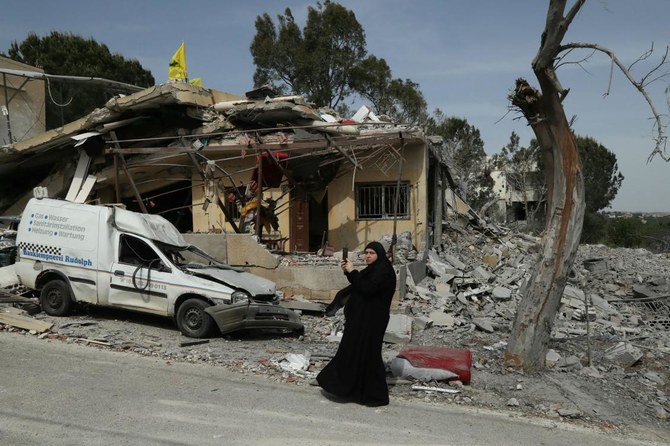
- Neither Lebanon nor Israel are members of the ICC
- Filing a declaration to the court would grant it jurisdiction to investigate and prosecute relevant crimes in a particular period
BEIRUT: Lebanon has moved toward accepting the International Criminal Court’s jurisdiction to prosecute violations on Lebanese territory since October, in what Human Rights Watch said on Saturday was a “landmark step” toward justice for war crimes.
Lebanon has accused Israel of repeatedly violating its sovereignty and committing breaches of international law over the last six months, during which the Israeli military and Lebanese armed group Hezbollah have traded fire across Lebanon’s southern border in parallel with the Gaza War.
That cross-border shelling has killed at least 70 civilians, including children, rescue workers and journalists, among them Reuters visuals reporter Issam Abdallah, who was killed by an Israeli tank on Oct. 13, a Reuters investigation found.
Lebanon’s caretaker cabinet voted on Friday to instruct the foreign affairs ministry to file a declaration with the ICC accepting the court’s jurisdiction to investigate and prosecute crimes committed on Lebanese territory since Oct. 7.
The decree also instructed the foreign ministry to include in its complaints about Israel to the United Nations a report prepared by the Netherlands Organization for Applied Scientific Research (TNO), an independent research institute.
That report looked specifically into Abdallah’s killing, and was produced by examining shrapnel, flak jackets, a camera, tripod and a large piece of metal that were gathered by Reuters from the scene, as well as video and audio material.
Neither Lebanon nor Israel are members of the ICC, which is based in The Hague. But filing a declaration to the court would grant it jurisdiction to investigate and prosecute relevant crimes in a particular period.
Ukraine has twice filed such declarations, which allowed for the court to investigate alleged Russian war crimes.
“The Lebanese government has taken a landmark step toward securing justice for war crimes in the country,” said Lama Fakih, Middle East and North Africa director at Human Rights Watch, urging the foreign minister to “swiftly” formalize the move by filing a declaration to the ICC.
“This is an important reminder to those who flout their obligations under the laws of war that they may find themselves in the dock,” Fakih said.
British troops may be tasked with delivering Gaza aid, BBC report says
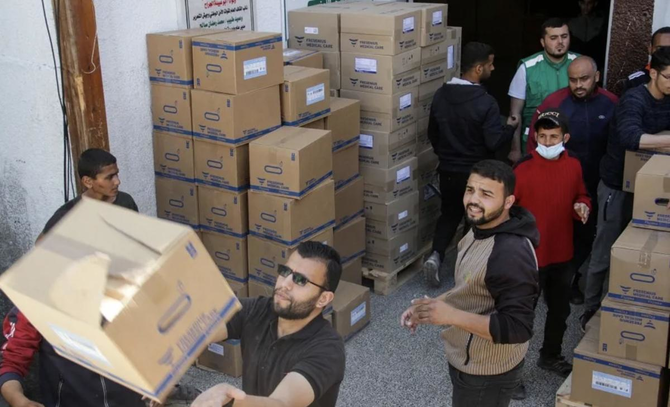
- Britain is already providing logistical support for construction of US pier, including a Royal Navy ship that will house hundreds of American soldiers
LONDON: British troops may be tasked with delivering aid to Gaza from an offshore pier now under construction by the US military, the BBC reported Saturday. UK government officials declined to comment on the report.
According to the BBC, the British government is considering deploying troops to drive the trucks that will carry aid from the pier along a floating causeway to the shore. No decision has been made and the proposal hasn’t yet reached Prime Minister Rishi Sunak, the BBC reported, citing unidentified government sources.
The report comes after a senior US military official said on Thursday that there would be no American “boots on the ground” and another nation would provide the personnel to drive the delivery trucks to the shore. The official, who spoke to reporters on condition of anonymity to discuss details not yet made public, declined to identify the third party.
Britain is already providing logistical support for construction of the pier, including a Royal Navy ship that will house hundreds of US soldiers and sailors working on the project.
In addition, British military planners have been embedded at US Central Command in Florida and in Cyprus, where aid will be screened before shipment to Gaza, for several weeks, the UK Ministry of Defense said on Friday.
The UK Hydrographic Office has also shared analysis of the Gaza shoreline with the US to aid in construction of the pier.
“It is critical we establish more routes for vital humanitarian aid to reach the people of Gaza, and the UK continues to take a leading role in the delivery of support in coordination with the US and our international allies and partners,” Defense Secretary Grant Shapps said in a statement.
Development of the port and pier in Gaza comes as Israel faces widespread international criticism over the slow trickle of aid into the Palestinian territory, where the United Nations says at least a quarter of the population sits on the brink of starvation.
The Israel-Hamas began with a Hamas-led attack into southern Israel on Oct. 7, in which militants killed around 1,200 people, mostly civilians, and took some 250 people as hostages. Israel says the militants are still holding around 100 hostages and the remains of more than 30 others. Since then, more than 34,000 Palestinians have been killed in Israel’s air and ground offensive, according to the Health Ministry in Hamas-run Gaza, around two-thirds of them children and women.



